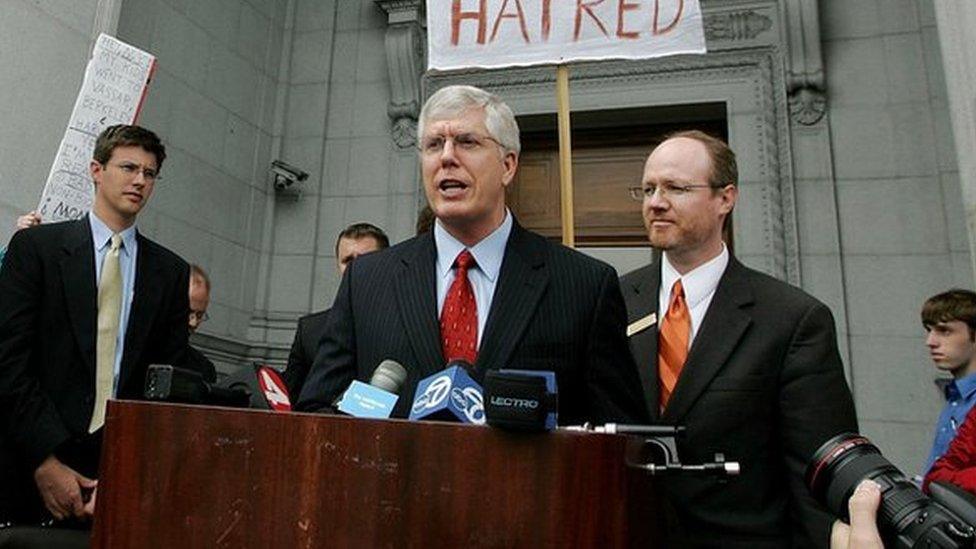Springsteen cancels North Carolina concert over 'anti-LGBT' law
- Published

Springsteen and his band were set to perform in Greensboro on Sunday
Bruce Springsteen has cancelled a concert in North Carolina, joining business groups in condemning a state law that rolls back protection for gay and transgender people.
The law invalidated several local anti-discrimination measures that protected gay and transgender people.
It also requires people to use public toilets that correspond to the sex listed on their birth certificates.
Major companies like Apple and Bank of America have criticised the law.
"Some things are more important than a rock show and this fight against prejudice and bigotry — which is happening as I write — is one of them," Springsteen said in a statement, external.
"It is the strongest means I have for raising my voice in opposition to those who continue to push us backwards instead of forwards."
Springsteen and his band were scheduled to perform in Greensboro on Sunday.
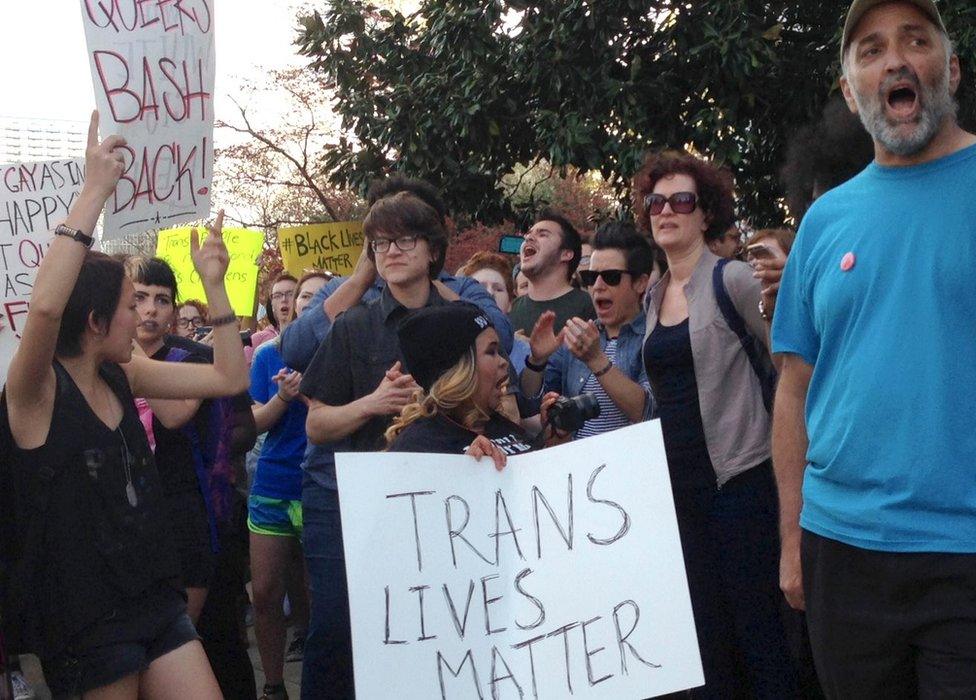
The new law in North Carolina has led to protests
Springsteen's cancellation is the latest fallout from the law.
On Tuesday, tech company Pay Pal dropped plans to expand in the state, pulling out about 400 jobs.
A television series for the streaming service Hulu decided to film in Canada rather than North Carolina because of the law.
There have also been calls to move major sporting events out of the state including the NBA All-Star Game.
Governor Pat McCrory, a Republican, defended the law calling it "common sense". He said news reports about the law and the backlash were "smearing our state in an inaccurate way".
Some supporters of the law said allowing transgender people to choose their restroom could lead to women and children being attacked.
They said they feared that men could pose as transgender people and use legal protections as a cover.
North Carolina is one of a number of states in the southern US that have recently considered or enacted legislation that many deem anti-gay.
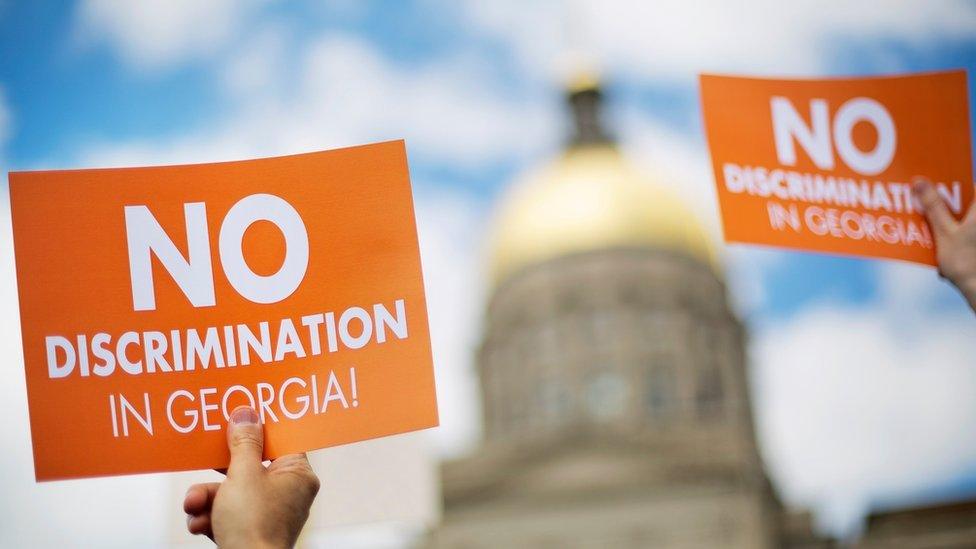
Georgia's governor vetoed a religious freedom bill amid concerns from business groups
Last June, a US Supreme Court ruling made gay marriage legal nationwide. In response, conservatives have sought to enact protections for religious people who believe marriage should only be between a man and woman.
Last year, Indiana made changes to a "religious freedom" law after business groups and others threatened to boycott the state. The updated law included language that prohibited discrimination of any kind.
This week, Mississippi passed a religious freedom law. That measure, however, specifically allows people to refuse service to gay people on religious grounds.
Georgia's Governor Nathan Deal vetoed a similar bill in March after pressure from prominent firms including Coca-Cola and the Walt Disney Co.
- Published6 April 2016
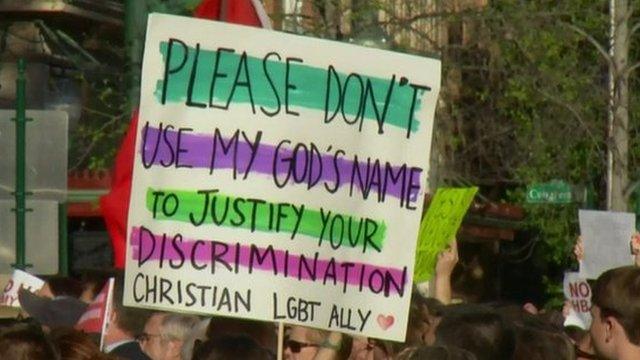
- Published31 March 2016
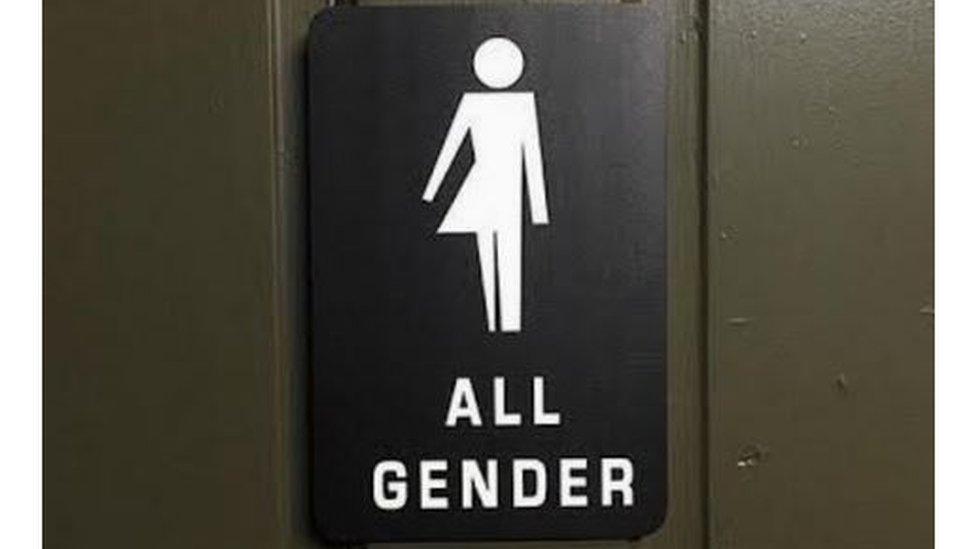
- Published26 June 2015
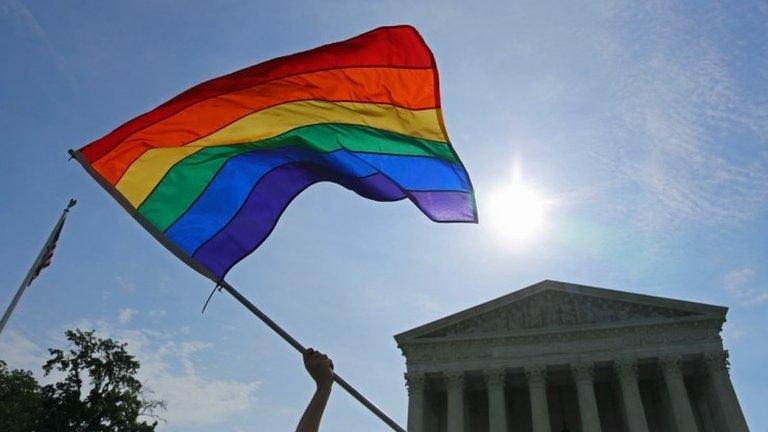
- Published4 September 2015
